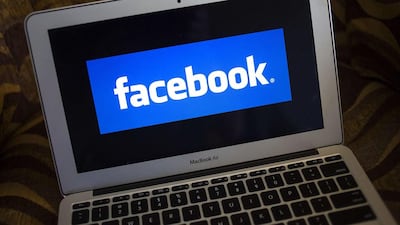Have you ever started a battle that, deep down, everyone knows you can’t win? That’s the situation Facebook finds itself in with its war against ad-blocking software.
The social networking company this week said it has found a way to eliminate ad blockers on desktop browsers. Users will see advertisements in their news feeds as normal, even if they have blockers installed.
On top of that, Facebook is also giving users the ability to edit their preferences so that they can tailor the sorts of ads they see.
“When they’re relevant and well-made, ads can be useful, helping us find new products and services and introducing us to new experiences,” the company wrote in a blog post, “like an ad that shows you your favourite band is coming to town or an amazing airline deal to a tropical vacation.”
With that, it’s clear Facebook doesn’t understand its enemy. It’s not ad-blocking software that is the problem but rather the interests of its own users – a much tougher obstacle to overcome, and not something the company is likely to ever engineer around.
About 200 million people worldwide have installed ad blockers on their desktop computers, according to PageFair, an anti-ad-blocking company, while a further 420 million have done the same on their smartphones. On desktops, blockers come in the form of downloadable browser extensions such as Disconnect and Ghostery, while on mobile they’re apps such as Crystal and 1Blocker.
Ad blockers have become popular in recent years for a number of reasons. For one, they help users to cope with websites that are particularly abusive with their display practices, such as intrusive pop-ups or over-the-top advertisement-to-content ratios.
Ads are also slowing down web browsing and, in the case of mobile, costing users money.
A study by The New York Times in autumn last year of the 50 most popular news websites found that many took a long time to load and used up large amounts of data thanks to their ads.
Boston.com, for example, took 39 seconds to load and used 19.4 megabytes of data. With an ad blocker running, that went down to eight seconds and 4MB. The Times’s own site took seven seconds and 3.7MB without a blocker, or four seconds and 2.1MB with one.
Many wireless users watch their monthly data allotments carefully. Casual web browsing can easily chew through those limits and lead to charges. It’s no wonder ad blockers are so popular.
Other users install them for privacy reasons. With websites using cookies and even super-cookies – tracking software that permanently lodges itself on a computer – many users are understandably concerned about their personal data and how it’s being stored and manipulated by advertisers.
The Electronic Frontier Foundation, a user-rights organisation, last year released its Privacy Badger browser add-on, just one of many extensions designed to fight against such uninvited snooping. Ad blocking is just an extra bonus.
On the other side of the argument is the fact that advertising underpins much of the internet economy. Companies such as Facebook, Twitter and Google – whose services are free to users – are built on ads, as are news publishers such as The New York Times and The Wall Street Journal.
While users are deploying blockers for good reasons, many legitimate businesses are being caught in the dragnet. Google, for one, considers ad blockers an existential threat, with an executive saying this year that a solution to the issue “is essential to our survival”.
Facebook thinks taking away users’ choice to block ads – and thereby slow their experience, raise their data usage and erode their privacy – and instead giving them the ability to choose which ads they want to see is the answer.
It’s a wrong move on both fronts. Limiting choice will merely accelerate the arms race, where blockers will emerge to block other blockers. And while some users don’t mind seeing a moderate amount of ads, the correct answer for a good number when it comes to which ads they’d like to see is “none”, even when the service being provided is otherwise free.
There’s no silver bullet in the debate, but in a milieu where technology rapidly makes consumer choice paramount, it’s increasingly looking like advertising may not be the best model for either internet companies or publishers to be staking their businesses on.
Such companies would be better served by devoting more effort to coming up with alternative revenue streams, rather than to fighting battles they can’t possibly win.
Peter Nowak is a veteran technology writer and the author of Humans 3.0: The Upgrading of the Species

